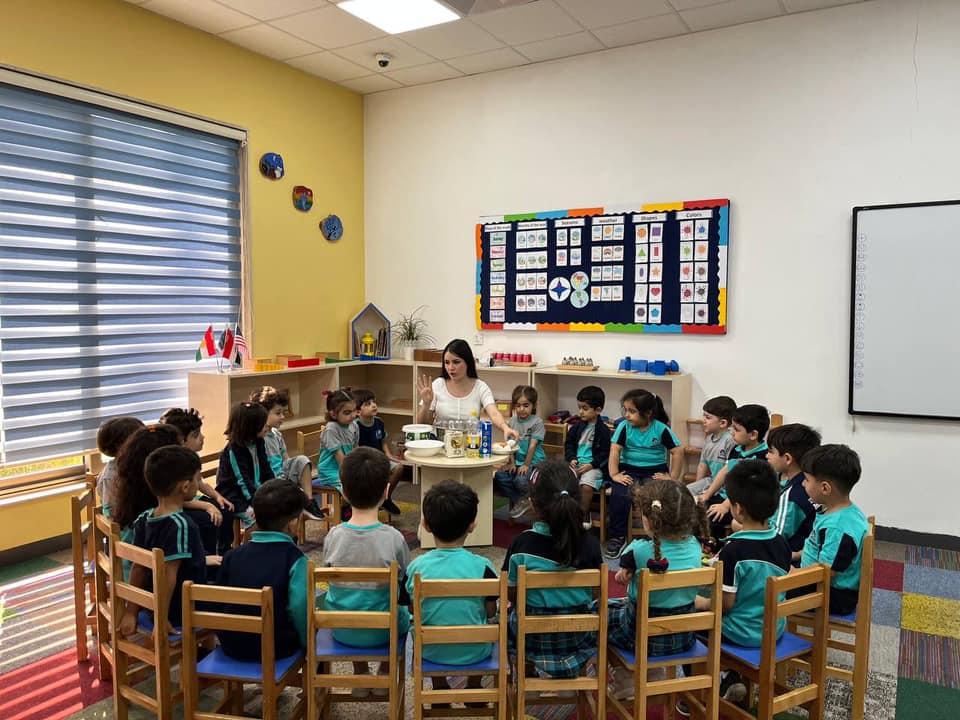Program

Pre-Primary Program
The International Montessori School’s toddler program allows your child to enjoy a Montessori experience in a small group setting. The children have an opportunity to explore and experiment in an environment that has been carefully prepared to meet the unique needs of this age. All of the furniture is sized to allow for maximum independence, and the Montessori materials are stimulating and inviting.
First, friendships are formed and social skills are developed. Toddlers are in the first “plane” of development and experience what Dr. Montessori described as “sensitive periods”. This is a time in the child’s life when s/he shows an almost obsessive interest in a particular activity essential to growth. The acquisition of language is an example of this, and correct and complete language is just one of the many skills fostered in our toddler community. A supportive atmosphere for parents as they watch their toddlers grow into independent three-year-olds is offered through ongoing communication, including two formal parent-teacher conferences.
Primary Program
The primary environment is designed as a child’s house. Children choose their work from self-correcting materials displayed on open shelves after the appropriate lesson from the classroom guide. Over a period of time, the children develop into a “normalized community,” working with high concentration and few interruptions. Normalization is the process whereby a child moves from being undisciplined to self-disciplined, from disorder to order, from distracted to focused, through work in the environment. The process occurs through the phenomenon of concentration, as the repeated work with materials that captivate the child’s attention promotes and aids their self-construction. In the Montessori primary classroom, academic competency is a means to an end, and the manipulatives are viewed as “materials for development."
Elementary Program
The elementary program offers a continuum built on the Primary environment. Like the Primary classroom, the Montessori materials are a means to an end. They are intended to evoke the imagination, then aid abstraction to generate a worldview about the human task and purpose. Students’ desire for community and citizenship fosters their social and moral development. The child begins to ask questions about the origins of the universe, the nature of life, people and their differences, and so on. On a factual basis, interdisciplinary studies combine geological, biological, and anthropological science in the study of natural history and ecology. Students are also in a sensitive period for reading. Studies are integrated not only in terms of subject matter but in terms of moral learning.





